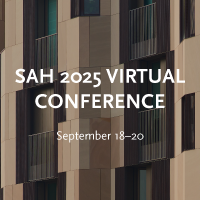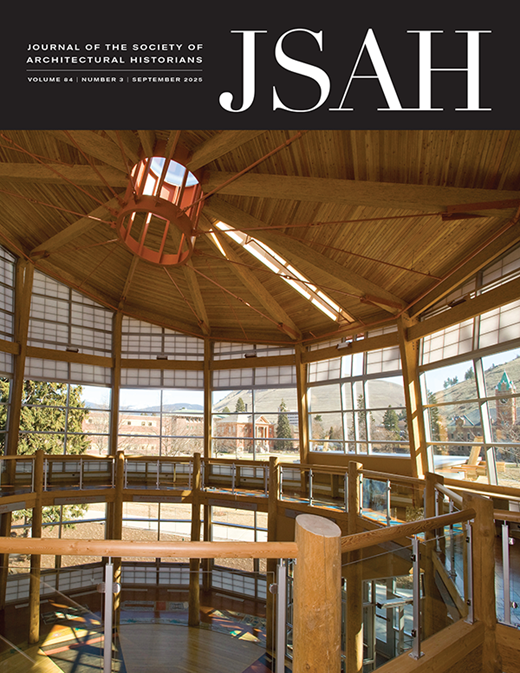-
Membership
Membership
Anyone with an interest in the history of the built environment is welcome to join the Society of Architectural Historians -
Conferences
Conferences
SAH Annual International Conferences bring members together for scholarly exchange and networking -
Publications
Publications
Through print and digital publications, SAH documents the history of the built environment and disseminates scholarship -
Programs
Programs
SAH promotes meaningful engagement with the history of the built environment through its programs -
Jobs & Opportunities
Jobs & Opportunities
SAH provides resources, fellowships, and grants to help further your career and professional life -
Support
Support
We invite you to support the educational mission of SAH by making a gift, becoming a member, or volunteering -
About
About
SAH promotes the study, interpretation, and conservation of the built environment worldwide for the benefit of all
Temporary architectures, adaptive tactics, the large- and small-scale movement and relocation of people, and concerted programs of colonization and razing shape sites and spaces of marginalized communities in Islamic contexts. People may be marginalized for reasons of religious practice, gender, ethno-linguistic identification, nationalist policies, conflict, environmental shifts, or other factors, with the result that they have limited access to certain resources and live their lives, seek places of worship, assemble support systems, and adopt and adapt the built environment in specific ways. Architectures created by the forces of marginalization include buildings on the urban outskirts and the borderlands of states, makeshift housing and services in the socio-economic badlands, and solutions to the need for space enacted in the “in-between” of ad hoc adaptations.
The impetus for our panel comes from our collective work to understand the marginalization of communities in Islamic contexts around the globe through the built environment, as well as from our active engagement with the selfhood, rights, and safety of women, children, minority denominational communities, sectarian groups, racialized people, and even those questioning their own socio-political and scholarly dominance.
According to UN statistics, migration disproportionately impacts states with majority Islamic populations, and the primary host countries for refugees are also largely Muslim. These dynamics have historical roots, and when combined with environmental and economic factors, can lead to marked changes in the architectural fabric, the exclusion and erasure of undesired peoples and their narratives, and a misunderstanding of how the built environment functions.
Our panel includes architects, visual artists, and scholars working to understand, address, and confront the conditions of marginalization embodied in architecture in Islamic contexts as part of their practice, teaching, research, and activism.
Speakers
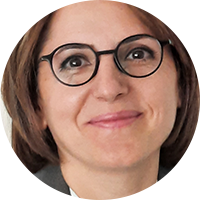
Birgül Açıkyıldız
Harran University Archaeology Department, Turkey
Birgül Açıkyıldız is an associate professor in the Archeology Department at Harran University, Turkey, and a research associate at Paul Valéry Montpellier 3 University, France. She holds a PhD from Paris I Panthéon-Sorbonne University. Her research examines the art and architecture of the Yezidis and other Kurdish communities, as well as Armenian, Chaldean, and Syriac communities of northern Mesopotamia.
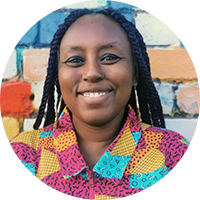
Nadina Ali
Freelance Graphic Artist, UK
Originally from Marseille, France, Nadina Ali is a graphic artist based in London, UK. Her work is centered on creating empowering messages around social justice and representation. She aims to amplify the voices of under-represented people, and challenge the status quo through her art. She recently exhibited at the Migration Museum, Lewisham, created work for the British Red Cross, and ran a workshop at the Ateliers Medicis, Paris.
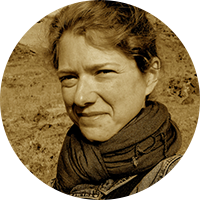
Angela Andersen (Moderator)
University of Victoria, Canada; Epidemic Urbanism Initiative, global
Angela Andersen, PhD, researches and teaches on the architectures of minority Muslim communities. She runs an educational program for children about architecture around the world, and has worked with museums, not-for-profit organizations, and initiatives involving architecture and social issues. She is the guest editor of the International Journal of Islamic Architecture 11.2 (2022) on the theme of hinterland forces and marginalization in Islamic architecture.
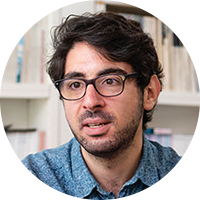
Aqil Cheddadi
Keio University Graduate School of Media and Governance, Japan
Aqil Cheddadi is a doctoral candidate and lecturer at Keio University, Japan. His research investigates algorithmic design for generating urban form, focusing on slums and historic towns of Morocco as a case study. Aqil received his MArch from the Moroccan National School of Architecture, and obtained his master’s in Media and Governance from Keio University.
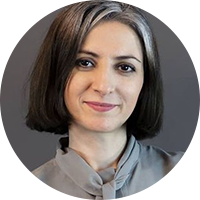
Sara Mozafari
Interdisciplinary Artist and Designer, Canada
Sara Mozafari is an Iranian-Canadian artist and designer based in Toronto. She holds a BA in architecture from the University of Toronto and an MFA in Interdisciplinary Art, Media, and Design from The Ontario College of Art and Design University. Her current practice focuses on recognizing surveillance, trauma, space, displacement, and memory in diverse aspects of human identity and social relations.

Muhammad Hadi Bin Osni
National University of Singapore
Hadi Osni is a practicing architect, and a PhD candidate at the National University of Singapore. His research utilizes memory as a source to digitally reconstruct lost architecture and spatial continuities of vernacular architecture due to migration. Hadi is a Community Researcher with My Community, for which he does community-based participatory research and heritage assessments.
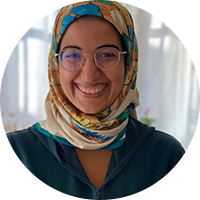
Hafsa Rifki
Keio University Graduate School of Media and Governance, Japan / Hassan II University, Faculty of Letters and Humanities, Morocco
Hafsa Rifki, MArch, is a licensed architect. She is pursuing a dual PhD within the Kobayashi Laboratory for Community Design at Keio University and the Department of Sociology of Casablanca at Hassan II University. Her research focuses on migrants’ place-making processes by exploring the relationship between space quality and social structure in social housing in Morocco.
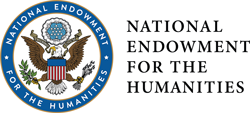 SAH CONNECTS has been made possible in part by a major grant from the National Endowment for the Humanities: Democracy demands wisdom. |
